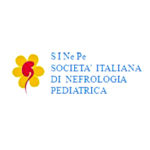
Children under 6 years of age with primary monosymptomatic enuresis do not need to be seen by a specialist, undergo laboratory (with the exception of urinary dipstick) or instrumental testing or start pharmacological treatment.
Primary monosymptomatic enuresis in children under 6 years of age does not require specialist treatment or specific diagnostic testing, with the exception of a simple urine dipstick test. When analysing a urine dipstick test, the possible presence of glycosuria and proteinuria should be evaluated and the specific gravity should be checked. No pharmacological treatment is necessary. What is required, however, is a detailed anamnesis of bladder function. After 6 years of age, before any eventual specialist visit, at least six months of behavioural therapy (an hour and a half before bedtime reduce liquid intake to a minimum, empty the bladder before going to bed and no drinking during the night) is recommended, together with keeping a bladder diary. Bowel function should also be corrected. If behavioural therapy should fail (at least 50% dry nights) an 8-week period of associated support therapy (enuresis alarm or 120 mcg desmopressin every evening) can be discussed with the family. The month before starting treatment, a bladder diary must be completed in order to compare results with those taken during the month after the start of treatment. If this approach proves unsuccessful (at least 50% dry nights), a specialist visit is recommended.
Sources
1. Neveus T1, Eggert P, Evans J, Macedo A, Rittig S, Tekgül S, Vande Walle J, Yeung CK, Robson L; International Children's Continence Society. Evaluation of and treatment for monosymptomatic enuresis: a standardization document from the International Children's Continence Society. J Urol. 2010 Feb;183(2):441-7. doi: 10.1016/j.juro.2009.10.043. Epub 2009 Dec 14.
2. Johan Vande Walle & Soren Rittig & Stuart Bauer & Paul Eggert & Daniela Marschall-Kehrel & Serdar Tekgul. Practical consensus guidelines for the management of enuresis. Eur J Pediatr (2012) Jun; 171 (6): 971–83 .
Attention. Please note that these items are provided only for information and are not intended as a substitute for consultation with a clinician. Patients with any specific questions about the items on this list or their individual situation should consult their clinician.


Recent Comments